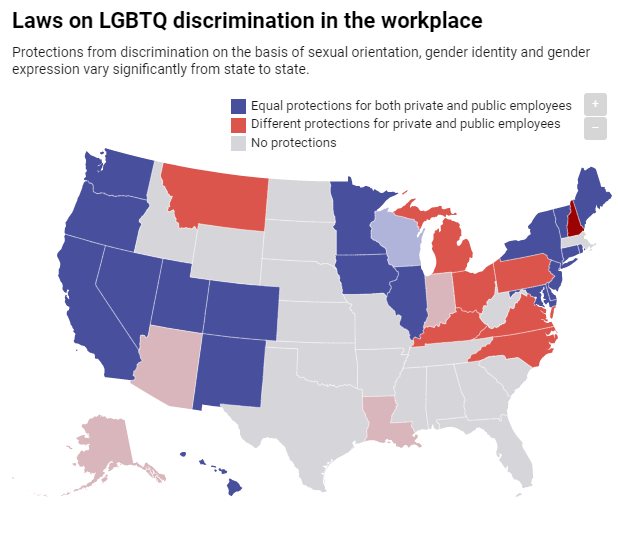
Location, location, location
Nationwide, 19 states had adopted same-gender marriage legislation, civil unions or other spousal rights before U.S. v. Windsor in 2013. An important predecessor to marriage equality, U.S. v. Windsor was significant in ruling that states must honor same-gender marriages performed in other states, and for overturning part of the Defense of Marriage Act.
I wanted to know if the characteristics of these states that were early supporters of marriage equality were similar to states that have been early adopters of legislation protecting LGBTQ workers.
In my study, I looked at the 2010 census for the geographic, social and economic characteristics of all 50 states. . .
A major legal conflict
Charges of discrimination are regulated by federal law. However, workers may also pursue legal action under state law, which is why state protections are important.
In 2012 and 2015, the Equal Employment Opportunity Commission issued administrative rulings to enforce federal law and accept charges of discrimination by LGBTQ employees under the protected class of “sex.”
These EEOC rulings are not legally binding on federal courts, which has led to a legal conflict between the 2nd, 11th and 6th Circuit Courts of Appeals. The 2nd Circuit is in the Northeast, the 6th Circuit is in the Midwest, and the 11th Circuit is in the South.
This Circuit Court split is intriguing, given my study’s finding of the role of a state’s geographic location in predicting its likelihood to adopt protections for LGBTQ employees. Currently, most LGBTQ workers in the South and Midwest regions have little to no state protections from employment discrimination.


No comments:
Post a Comment